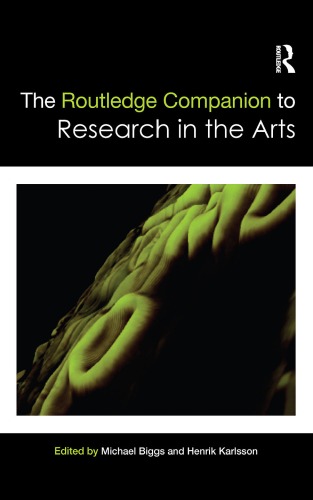

Most ebook files are in PDF format, so you can easily read them using various software such as Foxit Reader or directly on the Google Chrome browser.
Some ebook files are released by publishers in other formats such as .awz, .mobi, .epub, .fb2, etc. You may need to install specific software to read these formats on mobile/PC, such as Calibre.
Please read the tutorial at this link: https://ebookbell.com/faq
We offer FREE conversion to the popular formats you request; however, this may take some time. Therefore, right after payment, please email us, and we will try to provide the service as quickly as possible.
For some exceptional file formats or broken links (if any), please refrain from opening any disputes. Instead, email us first, and we will try to assist within a maximum of 6 hours.
EbookBell Team

4.0
26 reviewsThe Routledge Companion to Research in the Arts is a major collection of new writings on research in the creative and performing arts by leading authorities from around the world. It provides theoretical and practical approaches to identifying, structuring and resolving some of the key issues in the debate about the nature of research in the arts which have surfaced during the establishment of this subject over the last decade.
Contributions are located in the contemporary intellectual environment of research in the arts, and more widely in the universities, in the strategic and political environment of national research funding, and in the international environment of trans-national cooperation and communication. The book is divided into three principal sections – Foundations, Voices and Contexts – each with an introduction from the editors highlighting the main issues, agreements and debates in each section.
The Routledge Companion to Research in the Arts addresses a wide variety of concepts and issues, including:
This comprehensive collection makes an original and significant contribution to the field of arts-based research by setting down a framework for addressing these, and other, topical issues. It will be essential reading for research managers and policy-makers in research councils and universities, as well as individual researchers, research supervisors and doctoral candidates.